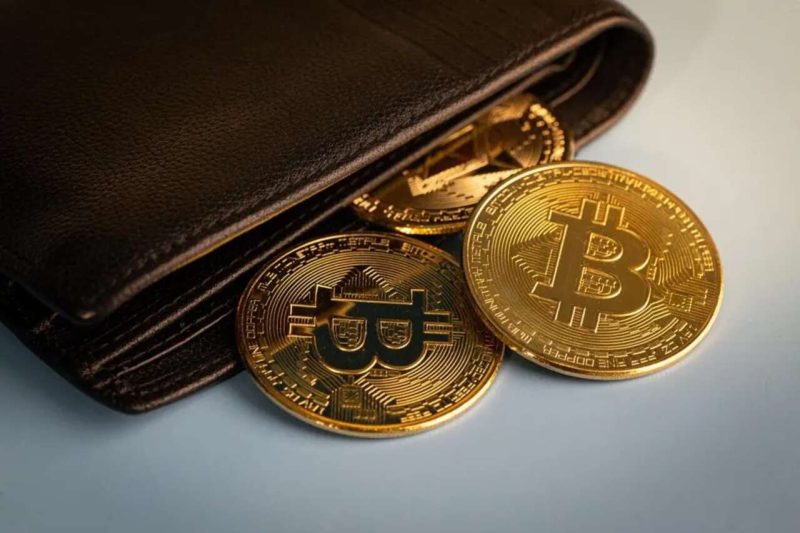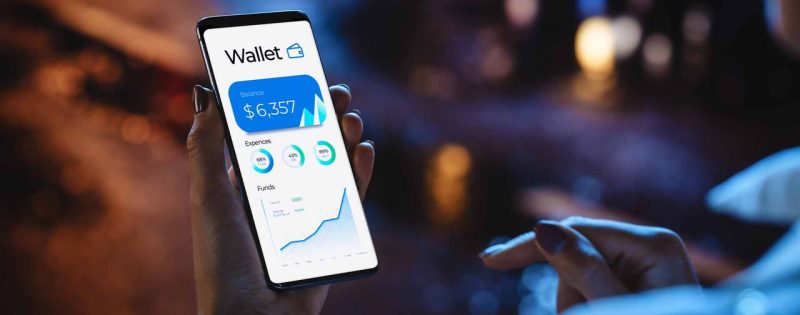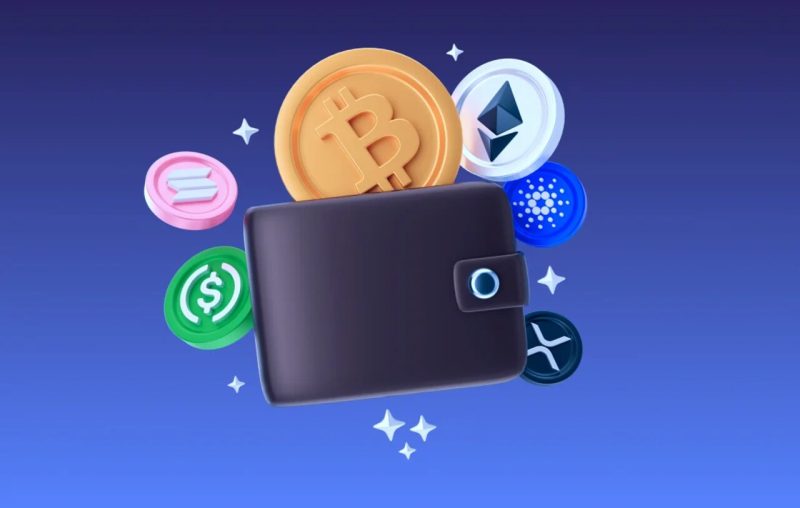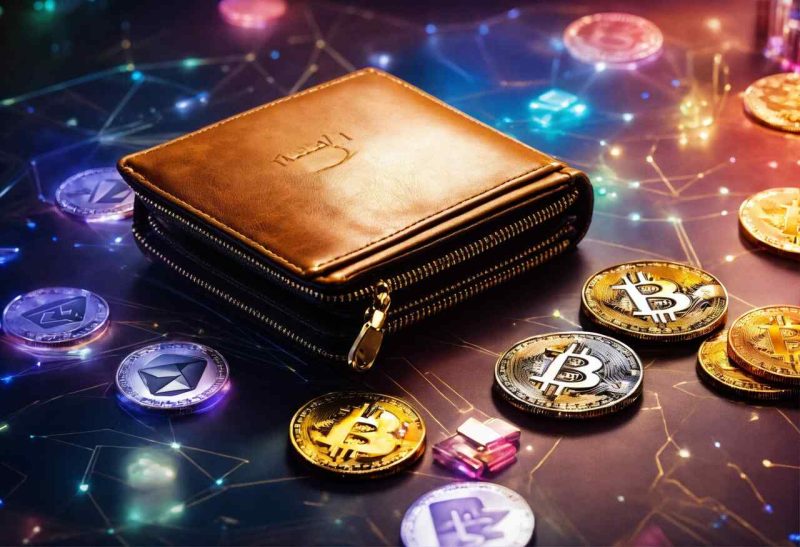Once you’ve purchased your cryptocurrency, you’ll need somewhere to hold it. While you could choose to leave it on a crypto exchange in a custodial wallet – which means you don’t fully own the asset, but instead you’re trusting the company to hold it for you – the better option is to move it into a wallet you own.
Crypto wallets can take the form of external hardware devices or software that runs on your mobile device or computer. And while their primary function is to keep your crypto safe and allow you to make trades, they also offer more control over your digital currency than you’ll get using a standard account at a crypto exchange or brokerage.
Unless you’re making daily crypto trades or have only a modest amount of money invested in crypto, we recommend you don’t store your crypto in a custodial wallet. Best practices for holding crypto include purchasing a hardware wallet for offline storage. Your next best option is a “noncustodial” software wallet or app. We’ll look at both options here in an effort to help you find the best crypto wallet for your own situation.
Best bitcoin and crypto wallets, compared

What is a crypto wallet and how does it work?
A cryptocurrency wallet is how you access and store your digital assets. They’re available as a physical, offline wallet, known as cold wallet or a digital, online wallet, known as a hot wallet.
There are three kinds of hot wallets – mobile app wallets, desktop wallets and online wallets. Mobile app wallets are used on your phone to facilitate purchases using crypto while desktop wallets are software installed on your computer. Online wallets are custodial wallets owned by the companies behind crypto exchanges. No matter which type of wallet you have, you’re able to transfer, store and receive your coins with it.
Your crypto isn’t actually stored on the wallet, however, but rather your keys to access the coins which are stored on the blockchain. Your key is a unique code that verifies that the assets you’re trying to access are yours. There’s a public key which is how you send crypto to your wallet, and a private key which proves ownership of the assets.
Both hot and cold wallets have their drawbacks. A hot wallet could be targeted by malicious hackers, while a physical wallet could be misplaced and cause you to lose access to your digital assets. Physical wallets are also more expensive as most hot wallets are free.
Do I need a crypto wallet?
While you could keep your assets in an online brokerage like Coinbase, a crypto wallet is the safest way to store your digital assets. It can only be accessed by a unique key that can’t be replicated once it’s generated. That also means it’s very important to store your key in a secure spot where you won’t lose it and only you can access it.
Hot wallet vs. cold wallet

A hot wallet is a digital wallet like MetaMask that’s connected to the internet. While secure, it’s not as secure as a cold wallet, which is a physical wallet that’s kept offline and can only be accessed using a dongle – a physical USB that has to be plugged into your computer.
If you don’t have the dongle and your key, you won’t be able to get into the wallet. A popular example of a cold wallet is a Ledger. You’re able to access your wallet from a computer that’s disconnected from the internet.
Another example of a cold wallet is a paper wallet. It’s a physical sheet of paper that has your private keys on it. Again, while it’s safer from cyberattacks because it’s offline, make sure you keep it in a safe place.
How to choose a crypto wallet

Choosing which crypto wallet is best for you will come down to how secure you want your assets to be, and how much trading you intend to do.
People who invest large amounts of money will likely want to opt for a cold wallet as it’s more secure, while people who dabble in investing will likely be fine not spending the extra money and using a hot wallet.
Security
When it comes to cryptocurrency, security is perhaps the most important thing to consider. You want your digital assets to be as safe as possible from hackers and fraudsters looking to steal them. The best defense from a hacker is going offline, so a cold wallet will be the most secure route to take. Being a physical object, cold wallets can still be lost or stolen, so it’s important to store your cold wallet securely.
However, if you do lose your wallet, you can still access your crypto by using your seed phrase. Seed phrases are randomly generated combinations of words that can be used to recover or access your account in the instance you don’t have your cold wallet or your hot wallet becomes disconnected.
Fees
While transactions on the blockchain may come with fees, hot wallets like Exodus are typically free to use, while the cold wallets on this list cost up to $255.
Ease of use
Hot wallets are easier to use than cold wallets, simply because you don’t need to take an extra step to access them. Hot wallets are connected to your browser via an extension, to your phone if you’re using a mobile wallet, or via software downloaded to your computer. They can be accessed any time, while cold wallets require a physical dongle to be connected to your computer.
Amount of trading
If you plan to do a lot of trading, you’ll need a wallet with advanced features. Some wallets support a lower number of digital assets, so you’ll want to opt for one that caters to a wider range of coins. You’ll also need to be aware of any restrictions the wallet has around trading. A cold wallet is the better choice if you do intend on trading and storing higher volumes.
How to store your coins in a wallet

Your wallet will have a public and private key. Your private key is how you access your assets, while the public key is used to send and receive crypto. When you purchase a coin, you’ll have to input your public key as the address for where the digital asset is sent.
A good rule of thumb is to always transfer a very small amount of cryptocurrency from the exchange you purchased it from, confirm that it made it to your wallet successfully and then transfer the rest. If you include the wrong address, your assets will be sent into the void with no way to be recovered.
FAQs
The editorial content on this page is based solely on objective, independent assessments by our writers and is not influenced by advertising or partnerships. It has not been provided or commissioned by any third party. However, we may receive compensation when you click on links to products or services offered by our partners.



